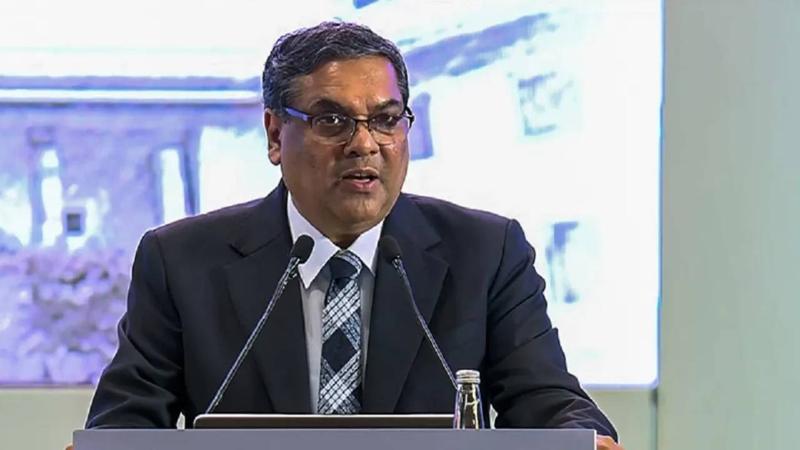Published 13:46 IST, November 11th 2024
Justice Sanjiv Khanna Becomes 51st Chief Justice Of India - Profile
Khanna took over as the 51st Chief Justice of India. The government announced his appointment on October 24, 2024.

Justice Sanjiv Khanna was sworn in as the 51st Chief Justice of India. The swearing-in ceremony was attended by Prime Minister Narendra Modi , Vice President Jagdeep Dhankhar, Defence Minister Rajnath Singh, and outgoing CJI D.Y. Chandrachud, among other dignitaries. Justice Khanna's tenure is set to last till May 13, 2025. The government announced his appointment on October 24, 2024, on outgoing CJI D.Y. Chandrachud's recommendation.
Early Life And Education
Born into a family of intellectuals on May 14, 1960, Justice Khanna's father was Justice Dev Raj Khanna, who served as a judge with the Delhi High Court before retiring in 1985. His mother, Saroj Khanna, worked as a Hindi lecturer at Lady Shri Ram College, Delhi. Justice Khanna completed his schooling at Modern School, New Delhi, in 1977, after which he enrolled in Delhi's St. Stephen's College and graduated in 1980. After graduation, he studied Law at the Faculty of Law, University of Delhi. He belongs to the same batch as Justice Indu Malhotra. Justice Khanna's uncle was former Supreme Court of India Justice Hans Raj Khanna, who propounded the basic structure doctrine in 1973 and famously delivered the lone dissenting judgment in the ADM Jabalpur v. Shiv Kant Shukla case, famously known as the Habeas Corpus case.
Career
Justice Khanna has had a long career spanning over forty years. In 1983, he enrolled as an Advocate in the Bar Council of Delhi. He later joined as the Senior Standing Counsel for the Income Tax Department. In 2004, he also served as the Standing Counsel (Civil) for the National Capital Territory of Delhi. On June 24, 2005, he was promoted to the post of Additional Judge of the Delhi High Court, and in 2006, he was made permanent. He later joined as a Judge of the Supreme Court of India in January 2019. His elevation sparked controversy within judicial circles because there were 32 other judges senior to him. However, his appointment was officially approved by the Government of India. Justice Khanna is also ex-officio Patron-in-Chief of the National Legal Services Authority and de facto Chancellor of the National Law School of India University. Before his stint as CJI, he contributed to several significant Supreme Court rulings, including suggesting amendments to Article 370, granting bail to Delhi's former Chief Minister Arvind Kejriwal, and overturning the electoral bond scheme. He also supported the use of EVMs in elections and rejected concerns about EVM tampering in April 2024.
Updated 14:59 IST, November 11th 2024